
Alphabetical Menu
Chronological Menu
|
Bergman Island 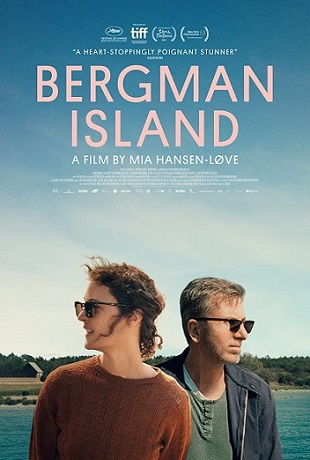 To describe Bergman Island's plot wouldn't do it justice because it's much more than about it's plot. Writer/director Mia Hansen-Løve provocatively explores the themes of marriage and art as well as the thin line between reality and fiction. Chris writes a film about a young woman, Amy (Mia Wasikowska), who travels to Fårö where she reunites with her long lost former love interest, Joseph (Anders Danielsen Lie). That film-within-the-film is fictional, yet the characters show up within Bergman Island. The screenplay feels natural and it's refreshing to just watch Chris and Tony doing something seemingly simple like walking and conversing with one another. The more they talk, the more you learn about the quality of their marriage as well as their different personalities. They become increasingly human and complex which makes them all the more interesting as characters. Much like an Eric Rohmer film, the dialogue is filled with perceptive insights which are quite thought-provoking. Hansen-Løve also makes great use of quiet moments which speak louder than words. Once the reality and fiction elements merge, the film becomes more intriguing without going over-the-top. Nuance and understandment are among the film's many strengths. Hansen-Løve should also be commended for trusting the audience's patience, intelligence and emotions. Patient audience members will be rewarded the most. If you're a fan of Eric Rohmer's cerebral and honest films about relationships, you'll easily find Bergman Island to be captivating and engrossing. One of characters in Bergman Island isn't human at all, yet it's among the important characters in the film because it becomes a form of poetry: the island of Fårö. An island represents isolation which could be what it represents as a metaphor. The surrounding sea also becomes a character which could represent freedom much like the sea in The 400 Blows. Another film combines the themes of filmmaking and relationships on an island: Jean-Luc Godard Contempt. Both films are very different in terms of plot and filmmaking style, but they both make great use of the setting to create atmosphere. It's also worth mentioning the leisurely pace that's refreshing and allows audiences to fully absorb each scene; there's no choppy editing or shaky cam to be found here, fortunately. Vicky Krieps is very well cast as Chris; she's a naturally talented actress who's just as mesmerizing here as she is in Phantom Thread. She also resonates warmth and charisma in her role. Chris and Tony seem like a married couple albeit an imperfect one. The way that their relationship evolves through the film is fascinating, moving and, much like the film itself, true-to-life. At a running time of 1 hour and 52 minutes, Bergman Island is provocative, honest and genuinely poignant with poetic imagery and shades of Eric Rohmer's cerebral films. 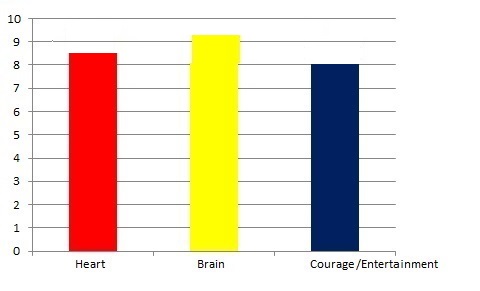 Freeland  Devi (Krisha Fairchild) has been making a living, albeit illegally, as a marijuana farmer for years in rural Northern California. When marijuana becomes legalized, the future of her business remains in jeopardy as she faces financial and legal hardships. It also affects her relationship with her clients, her workers and her former lover, Ray (John Craven). Meanwhile, a mysterious person she may or may not know texts her out of the blue expressing interest in purchasing some of her weed. Freeland could've taken the legal thriller route because the first ten minutes or so show Devi as she faces the legal issues when marijuana becomes legalized. She even consults with a lawyer. Instead, the screenplay by co-writers/directors Mario Furloni and Kate McLean takes a more character-driven route as Devi struggles financially and emotionally. To watch her life spiraling downward is heartbreaking, but she remains a compelling character because she's innately fragile and brave at the same time. Those two characteristics are not mutually exclusive even though they may seem that way. Her workers are like her family, so for her to lose them one by one is the equivalent of her losing part of her family. She comes across as a compassionate person in spite of the actions that she takes which won't be spoiled here. She has every right to be indignant, though, for the way that others treat her, not just the government, but also someone one tries to mess her with via text. A scene that speaks volumes about her compassion is when one of her workers comes onto her one night while he's drunk and instead of yelling at him, she asks him if he's alright. It's interesting how the filmmakers incorporate exposition, particularly when it comes to Devi's hippie past. They don't reveal it right away, but when they do, it's at the right time and shown through brief flashbacks. Admittedly, the third act does take a slight nosedive as it switches to a different genre and goes into much darker territory while also veering inro contrivance, but at least it doesn't crash or take a steep nosedive, so that's merely a minor flaw. Krisha Fairchild gives a tour de force performance as Devi. She's the movie's heart, mind and soul. The film's emotional depth comes more from her than from the screenplay, so the filmmakers are fortunate to have her as the lead. It's also quite rare and refreshing to see an older character, especially a woman, written as a human being rather than as someone who's just "old" or as a supporting character or comic relief. The screenplay remains focused, for the most part, on Devi and constructs enough of a window into her heart, mind and soul for the audience to peer into it, particularly during the moments of silence as you merely observe Devi. There's no voice-over narration, so the filmmakers trust the audience's imagination and emotions to decide for themselves what Devi might be thinking during those moments. Also, Freeland doesn't ask the audience to just Devi. They're free to do that if they want, but it's easy to just experience her instead. It's also worth mentioning how nature becomes a character in and of itself more often than not throughout the film. Some of the breathtaking shots not only add atmosphere, but also poetry. At a running time of merely 1 hour and 20 minutes, Freeland is engrossing, lyrical and poignant with a radiant, bravura performance by Krisha Fairchild.
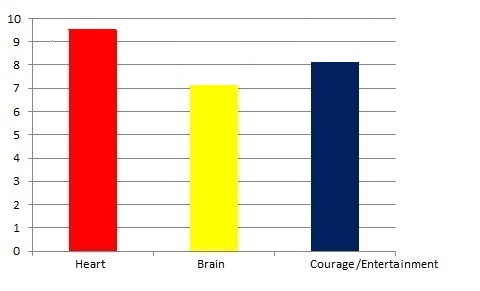 Halloween Kills 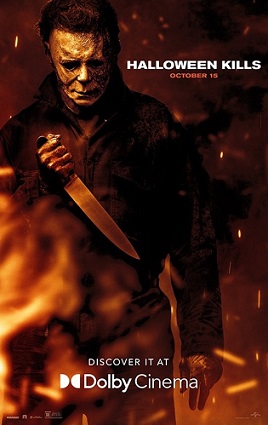 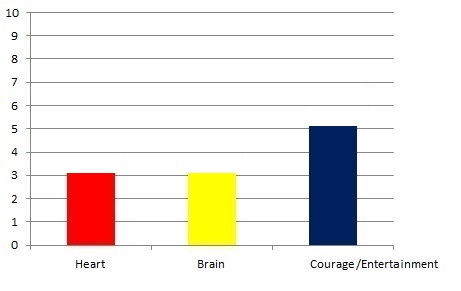 The Last Duel 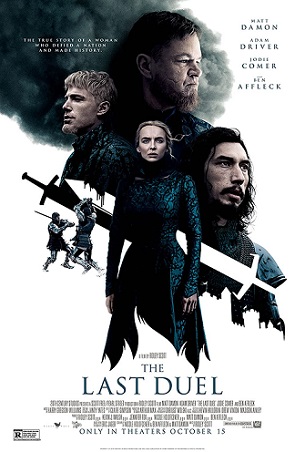 In 14th Century France, Jean de Carrouges (Matt Damon), a knight, learns from his wife, Marguerite de Carrouges (Jodie Comer) that his friend, Jacques Le Gris (Adam Driver), a squire, raped her. He challenges Jacques Le Gris to a duel to seek revenge against him for the crime committed against his wife. Alex Lawther plays King Charles VI while Ben Affleck plays Count Pierre d'Alençon. The Last Duel has a tonally uneven screenplay by Nicole Holofcener, Matt Damon and Ben Affleck that leaves little room for interpretation, but there's barely any monotony or dullness and there's even some suspense every occasionally. The screenwriters blend action and drama with a small dose of campiness that doesn't quite fit, so it feels clunky. The characters of Count Pierre d'Alençon in particular and King Charles VI are written as though they were in a satirical film like Emma.. Just seeing Ben Affleck in the scene that introduces his character as he interacts with Jean de Carrouges is amusing just to watch both actors together again. It comes with bad laughs, though, and distracts from the narrative momentum, especially because it's too tempting to think to yourself, "Oh, look! There's Ben Affleck with blonde hair! Oh, look! He's talking to Matt Damon!" That beat is similar to the beat when watching Charlie Sheen show up in Being John Malkovich. Director Ridley Scott and the screenwriters don't seem to trust that narrative momentum to propel the film; instead they resort to adding humor that tries to be campy and offbeat, but ends up as silly and awkward. The subject of rape and revenge, which is the meat of the story, which ends up pitting the two friends against each other in an inevitable physical duel, generates enough tension. Perhaps if the humor were more witty, dry and understated, it would've worked better juxtaposed against the many dark elements. The screenplay is based on a true story, but that's not something that's obvious while watching the film. The performance by Jodie Comer elevates the film and manages to be its saving grace. Her performance has nuance and emotional depth that's lacking everywhere else. Fortunately, her character, Marguerite de Carrouges, becomes a more central one as the film progresses, so this is one of those movies that gets better as it goes along because of that. Adam Driver gives a solid performance, although he hams it up too much at times, but at least he does a decent job of making the audience truly despise his character, Jacques Le Grus. The ultimate duel feels thrilling and suspenseful with great cinematography while not shying away from showing the gritty violence, although it leaves very little to the imagination. By that time, though, the audience becomes invested enough in the character of Marguerite de Carrouges that it's easy to root for her husband to defeat Jacques Le Gris and to cheer him on. The musical score by Harry Gregson-Williams is also terrific without being overbearing or intrusive. Although the running time is 2 hours and 32 minutes, it's not weighed down by it too much which is sometimes a problem with films that clock past 2 hours. The Last Duel is ultimately well-produced, gritty and rousing despite tonal unnevenness and lack of nuance. Jodie Comer gives a radiant, breakthrough performance that breathes life into the movie. 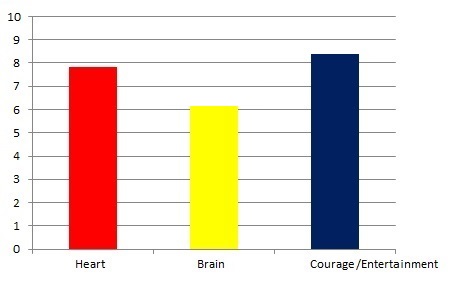 Luzzu 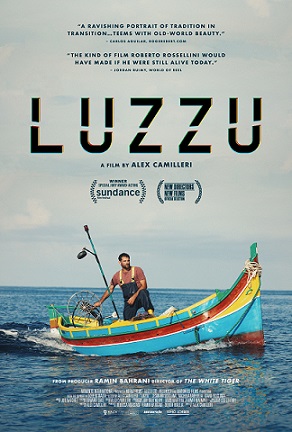 Jesmark (Jesmark Scicluna) struggles to make ends meet while working as a fisherman on the island of Malta. He has a wife, Denise (Michela Farrugia), to take care of as well as their newborn baby son, Aiden, who's showing signs of developmental problems. His fishing boat, known as a luzzu, needs to be repaired because it sprung a leak. When he discovers the black market of the fishing industry, he must choose whether or not to become a part of it to solve his financial problems. As Hitchcock once wisely observed, some movies are a slice-of-cake; others are a slice-of-life. Luzzu is much closer to being a slice-of-life. Writer/director Alex Camilleri introduces the character of Jesmark as he goes about his daily life as a fisherman. The exposition is there, but only minimally. This isn't the kind of film with lots of action and everything gets spoon-fed to the audience. There's also little to no comic relief nor does the third act wrap everything up neatly. In other words, Luzzu remains refreshingly unHollywood. It's a simple story that becomes increasingly complex. Within the first 30 minutes, the audience learns about Jesmark's various problems which include money issues, marital issues and health issues regarding his newborn son. He's experiencing many tragedies concurrently, so it makes sense that he's under a lot of pressure and stress. Fortunately, Camilleri doesn't turn the film into "poverty porn" by hitting the audience over the head with Jesmark and his family's pain and suffering. Sure, the pain and suffering is there, but that's not what Luzzu is really about. It's ultimately about a broken human being who's doing his best to get out of poverty and to help his family. Even when Jesmark seems to be in despair, there's still a little hope on the horizon. Jesmark Scicluna, a fisherman himself in real life, gives a natural, understated performance as Jesmark. His performance feels authentic from start to finish which makes the film all the more emotionally engaging. As mentioned before, there's a lack of comic relief and levity, but what comes closest to serving as levity is the beautiful, majestic scenery of the Mediterranean Sea which provides some eye-candy. The use of metaphors is also worth mentioning. For instance, Jesmark's luzzu has become an extension of Jesmark himself. When it breaks, he breaks too. When it needs to be repaired because of a leak, he needs to be repaired too because he's broken too. Writer/director Alex Camilleri wisely grasps that it's much harder to repair a human being than it is to repair an object. Bravo to him for treating Jesmark like a human being and for finding an actor who accomplishes the same task. At a running time of 1 hour and 34 minutes, Luzzu is an emotionally engrossing, well-acted and refreshingly un-Hollywood slice-of-life 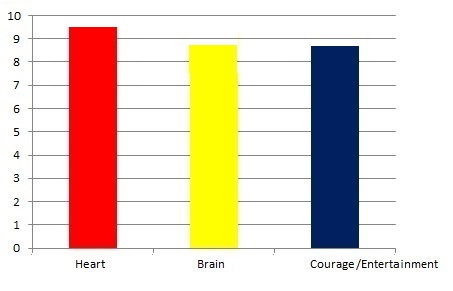 Needle in a Timestack 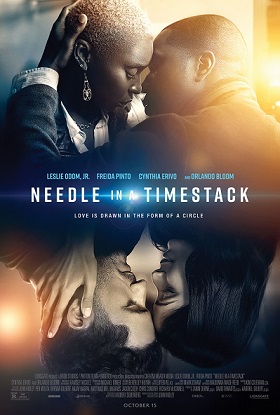 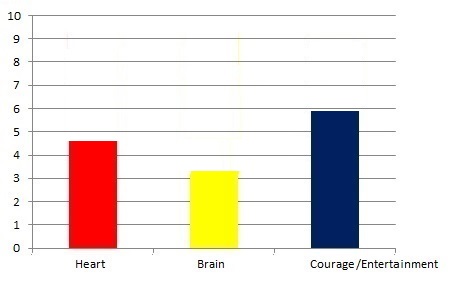 Son of Monarchs 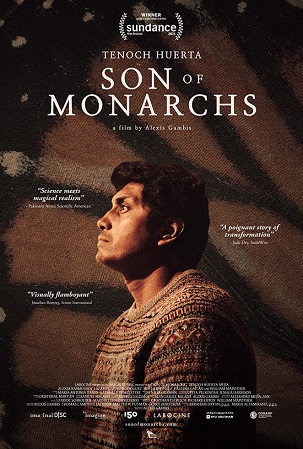
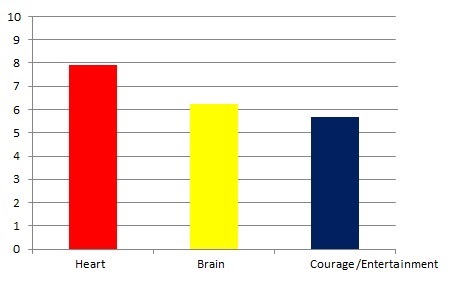 Wheel of Fortune and Fantasy 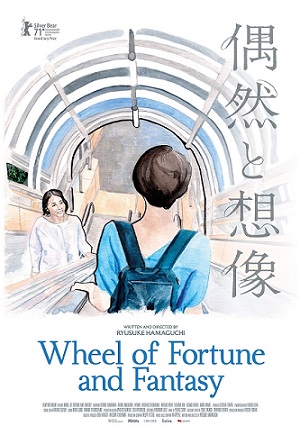 In the first chapter, Tsugumi (Hyunri) sits in the back of a cab with her friend, Meiko (Kotone Furukawa), and reveals to her that she met a man, Kazuaki (Ayumu Nakajima), whom she hit it off with. She doesn't know, though, that Meiko happens to be his ex-girlfriend. In the second chapter, Nao (Katsuki Mori), a married woman, helps her friend with benefits, Nao (Katsuki Mori) seeks revenge against his professor, Professor Segawa (Kiyohiko Shibukawa), by trying to seduce him. In the third chapter, set in the near future, Moka (Fusako Urabe) attents her high school reunion hoping to meet the very first love of her life. When she crosses paths with Nana (Aoba Kawai) at a train station, Nana mistakes her for someone else while Moka mistakenly believes that she's her long-lost love. Upon learning about the mix-up, they agree to try roleplaying the women that they confused each other for. Writer/director Ryûsuke Hamaguchi weaves three thematically connected stories together in three chapters titled, "Magic (or Something Less Assuring)", "Door Wide Open", and "Once Again." Each of the stories deals with love, friendship, fantasy and fate in different ways. The first chapter, "Magic (or Something Less Assuring)", is the most engaging among the three, but all of them have at least something to offer because they have something to say about relationships and human nature. Hamaguchi has a knack for writing organic dialogue that sounds like the way human beings talk, and he avoids the pitfalls of cheesiness and melodrama. The first chapter works the best because it says a lot about fate and relationships while avoiding those pitfalls. "Door Wide Open" has some suspense and intrigue, but it feels more contrived than the other two chapters. It's also the darkest chapter of the three, although it's not too dark. It could've easily been turned into a feature length psychological thriller and perhaps would've worked better that way because as a short, it bites off more than it could chew. Hamaguchi keeps everything light and gentle--even the humor isn't laugh-out-loud funny per se. The final chapter, "Once Again," is the most imaginative one that's also quite moving with an ending that's quietly powerful, honest and understated. The performances in Wheel of Fortune and Fantasy feel natural and emotional depth which helps to ground the film in realism even further. No one over-acts nor under-acts. Hamaguchi trusts the audience's patience although not as much as he did in the tedious 5-hour film Happy Hour. The pacing in this film is less slow than in Happy Hour and it doesn't feel repetitive nor does it test the audience's patience as much. Another one of the filmmaker's strengths besides that he knows how to write dialogue that's organic and lacks stiltedness is that he writes good roles for women and explores female friendships on screen in a way that feels authentic. His films aren't as profound and cerebral as Eric Rohmer's films, but they come close. It would be interesting to pair Wheel of Fortune and Fantasy with another film that also deals with the themes of relationships and fantasy vs reality, Bergman Island, directed by Mia Hansen-Løve. Both Hamaguchi and Mia Hansen-Løve have similar sensibilities when it comes to how they treat the characters and the audience as intelligent human beings. At a running time of about 2 hours, Wheel of Fortune and Fantasy is a mildly engaging and uneven, yet quietly moving and understated anthology.
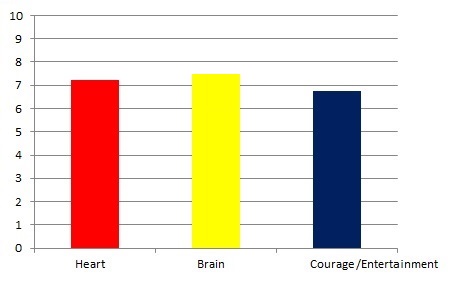 |